As the Tory Party tries to recover from yet another mistake in its choice of leader, even openly discussing bringing back the mistake before last in the unappealing form of 'conviction politician', Boris Johnson, the factional infighting as Tory MPs try to decide "What's in it for me?" continues to dominate UK politics as it has done ever since they chose David Cameron. Meanwhile major problems such as increasing poverty, a collapsing NHS, almost non-existent social care, lack of affordable housing and a stagnating economy are ignored in favour of personal gain and political careers.
On the day Truss was elected, I wrote:
Liz Truss could be the latest in a long line of increasingly incompetent Tory leaders which began with John Major, followed by William Hague, Ian Duncan Smith, Michael Howard, David Cameron, Theresa May and Boris Johnson in that order. Arguably, Tory leaders have been increasingly less competent since Neville Chamberlain, interspersed only by Winston Churchill and (arguably) Margaret Thatcher, who, nasty though she was, can't really be described as incompetent, save only for the Poll Tax debacle that cost her the leadership.Little did I suspect that the interesting times would be so short and that the car crash that was Liz Truss's premiership would be so short-lived. It's almost disappointing that one of the most gratifying spectacles in UK politics - the Nasty Party if full civil war - has come to an end so soon. However, that may be an unrealistic assessment, as there is no sign yet of even a truce, as the backstabbing and manoeuvring for position is to last at least another week as the MPs choose another leader and this time try to deny the 60,000 or so party members a say. After all, they chose, in succession, Theresa May, Boris Johnson and Liz Truss, so clearly they can't be trusted to choose responsibly.
She [Truss] is something of a political balloon, going with the political wind in whatever direction furthers her career. She comes from a left-leaning family and used to go to peace camps with her socialist mother. But she chose the Tory Party to stand as an MP. In the Tory Party she was initially to the left of the party and voted ‘remain’ in the EU referendum. Having been on the losing side she quickly realised she had been a Brexiteer all along and is now an enthusiastic supporter of the idea. It remains to be seen what other principles she will be willing to abandon to retain power. As always, with Tory MPs, “What’s in it for me?” is the only principle worth holding to.
To add to her difficulties, Truss inherits a party, after a fractious and bruising leadership campaign, that is hopelessly divided on a number of issues, with a substantial number holding former Labour 'safe' seats in Northern ‘red wall’ constituencies, who are fearful of losing them at the next election, and she was elected by just 57% of the members - the smallest majority of any leader since they allowed the members a say in the matter.
She also inherits an impending financial crisis with standards of living forecast to fall by 10% in the next two years - in the lead up to the next general election, due in Spring 2024 - with soaring energy prices, zero economic growth, accelerating inflation expected to exceed 20% - levels not seen since the 1970s, increasing interest rates, and an NHS on the point of collapse, due to the 'Brexit bonus' of lots of staff in the NHS and the Social Care sectors returning to their EU home countries, having lost the right to live and work in the UK.
And the Tory Party can no longer get away with blaming everything on the previous Labour Government, having been in government themselves since 2010. Instead, they are now facing the humiliation of having to adopt some of Labour's policies if they are to tackle the impending crises. The Tories are quickly losing their reputation for economic competence, that was never really deserved anyway, having successfully blamed the Wilson/Callaghan government for the economic chaos of the 1970's caused by the 'Barber boom' under Ted Heath, which was a cynical attempt to buy popular support.
What probably won it for Truss was her promise to introduce big tax cuts, which appealed to the Tory Party members whose single political concern is always, "What's in it for me?" She is now faced with either implementing that against all the financial advice that it will do nothing for the poor, who are facing the brunt of the economic crisis, because they don't pay tax, but will be inflationary, so making the poor poorer, or reneging on a central promise to her members to make them richer at the expense of the poor.
[…]
The latest update to this story is that Truss seems to be stuffing her cabinet with those who supported her in the leadership campaign and sacking or refusing jobs to Sunak supporters. This bloodbath might make the cabinet easier to control but will leave a lot of frustrated, ambitious, and embittered Tory MPs on the back benches, when the last thing she needs is enemies. A 60-odd seat majority is no guarantee of an easy time in the Commons, as Johnson discovered. Perhaps she is merely showing her party how tough and ruthless sha can be and how she will deal with disloyalty in the future.
The next two years will be… interesting.
So, how did the oh-so-predictable failure of the Truss premiership come so quickly?
In this article, reprinted from The Conversation under a Creative Commons license, reformatted for stylistic consistency, Matthew Flinders, Founding Director of the Sir Bernard Crick Centre for the Public Understanding of Politics, University of Sheffield, suggests there were five key elements in her rise and fall. The original article can be read here:

Liz Truss resigns as prime minister: the five causes of her downfall explained
Matthew Flinders, University of Sheffield As Liz Truss stepped away from the lectern outside No.10 Downing Street after resigning as leader of her party, it probably occurred to her that her time as prime minister will have been only as long as the leadership campaign that got her there.
When Boris Johnson walked away from No.10 there was a sense in the United Kingdom that the time had come for stability, competence and the benefits of a boring politician who could steady the ship of state. Truss’s sea legs have proved remarkably shaky. She has pulled off arguably the biggest coup in British political history by making Johnson’s tenure look boring by comparison.
Truss began as prime minister in September, proposing a radical agenda that she claimed was designed to kick start economic growth. But she had to row back on those plans almost immediately after the polar opposite happened. Her proposals triggered an immediate economic meltdown from which she never recovered.
Liz Truss resigns.
Poor politics
Truss practised poor politics from the very beginning of her tenure. She refused to appoint anyone into government that had not supported her campaign, leaving her with a limited pool of talent. Her stance that you were either a friend or an enemy (and enemies were out) gave her a reputation for revenge. Not a good start. There was an obvious lack of talent in her cabinet and after less than two months in office, Truss had to fire her chancellor and home secretary – the two most senior positions in government below the PM.
Poor party process
But the cracks were emerging even before Truss took office as a direct result of the way the Conservative party elects its leaders. Truss ended up in the final round of the contest as much by default as anything else and did not enjoy the enthusiastic support of her parliamentary party. In order to win the leadership election, she sold herself to the rank and file of party members by offering them tax policies that were tailored entirely to their needs rather than reflecting the needs or priorities of the wider country.
She adopted an awkward Thatcherite persona in presentational terms and a “red meat” strategy in policy terms. The overall effect was a new prime minister who was badly misaligned with both the public and her parliamentary party.
Poor policy
The level of misalignment was clear from the minute Truss’s self-mutilating mini-budget was announced. Removing barriers on bankers bonuses and reducing business taxes was never going to land well in the middle of a cost of living crisis. The optics were all wrong, as any first-year politics student would know.
Poor presentation
Politics is, at the end of the day, a people business. You need to be able to communicate, resonate, connect and empathise. The most important form of intelligence for a prime minister is not therefore intellectual (we have experts) or financial (they have advisers) but emotional. The simple fact is that Truss never seemed to be able to relate or relax. The interview responses were always too mechanical, the body language too cardboard.
Poor positioning
If the troubles of Truss reveal one thing it is most probably the dangers of the British constitution. It remains a power-hoarding constitution where an incredibly small number of people can make massive decisions with very little, if any, scrutiny. Her sidelining of the Office for Budgetary Responsibility being a case in point.
“Poor, poor, poor” might well provide a fitting epitaph for Truss’s time in office but I cannot help but wonder if her experience is symptomatic of a far bigger issue. Is it too easy to blame Truss? If anything the last month has exposed a vacuum at the centre of British politics about ambition, imagination and vision. There really isn’t any.
In a post-Brexit context, filling this vacuum has to be the core concern of whomever next decides to accept the keys to No.10.
Matthew Flinders, Founding Director of the Sir Bernard Crick Centre for the Public Understanding of Politics, University of Sheffield
She undoubtedly has an unrealistic assessment of her own brilliance. To use Neil Kinnock's assessment of Margaret Thatcher, she has the self-confidence of the second rate, because she lacks the critical thinking skills to realise her own limitations. This was evident in her belief that the 55% of Tory Party members who voted for her constituted a mandate to pursue radical economic policies. That wasn't a mandate to govern the country; it was the Tory Party reminding her that a Tory Party leader's job is to make them richer out of the public purse.
Her lack of moral scruples as shown by her unashamed offer of a big bribe to Tory Party members in the form of massive, un-costed, tax-cuts for the rich, pandering to their greed and selfishness, at the expense of the poor, if they voted for her - the 'mandate' she found impossible to deliver.
Her lack of compassion for the poor as shown by her willingness to make them bear the brunt of the cost of her bribe to the rich, assuming she had the basic economic understanding that un-costed tax cuts have to be funded either by cuts in welfare or an inflationary increase in government borrowing, both of which will hit the poorest hardest.
Her arrogance, possibly reinforced by her equally arrogant 'best friend', Kwaze Kwartang, that she knew best and could ignore the experts, who would all be proved wrong, coupled with a Thatcherite tendency to name-call those who disagreed with her rather than listen to their objections.
The country is better off without her. The question is, will her successor follow the trend of increasingly incompetent Tory Party leaders and be even worse.
Remember the days when we thought that no-one could be worse than Theresa May? How long ago that seems now, and how we underestimated the Tory Party’s ability to produce even worse!
, The next article, again from The Conversation, is by Ben Williams, Lecturer in Politics and Political Theory, University of Salford, Greater Manchester, UK. His original article can be read here:

Liz Truss resigns: who is in and who is out in the race to replace her?
Ben Williams, University of Salford
Liz Truss’s resignation as the leader of the Conservative party immediately triggers a contest to replace her as prime minister.
After the turmoil of recent months, it has been decided that the contest will be short and sharp. Candidates will need the backing of 100 of their fellow Conservative MPs to run by Monday, which means there will be a maximum of three candidates. A successor will be announced in one week. A new prime minister will therefore be in place by October 28.
This is how the field stands so far.
Jeremy Hunt
Jeremy Hunt took over as chancellor less than a week before Truss’s resignation and was quickly being referred to as the true holder of power in the government. His name loomed large as speculation of Truss’s downfall mounted, if only because he was viewed as a safe pair of hands after a period of sheer chaos.
So it was a surprise when he almost immediately took himself out of the running. Hunt has twice run for the top job and failed, first against Boris Johnson and then in the most recent election, when he fell at the first hurdle.
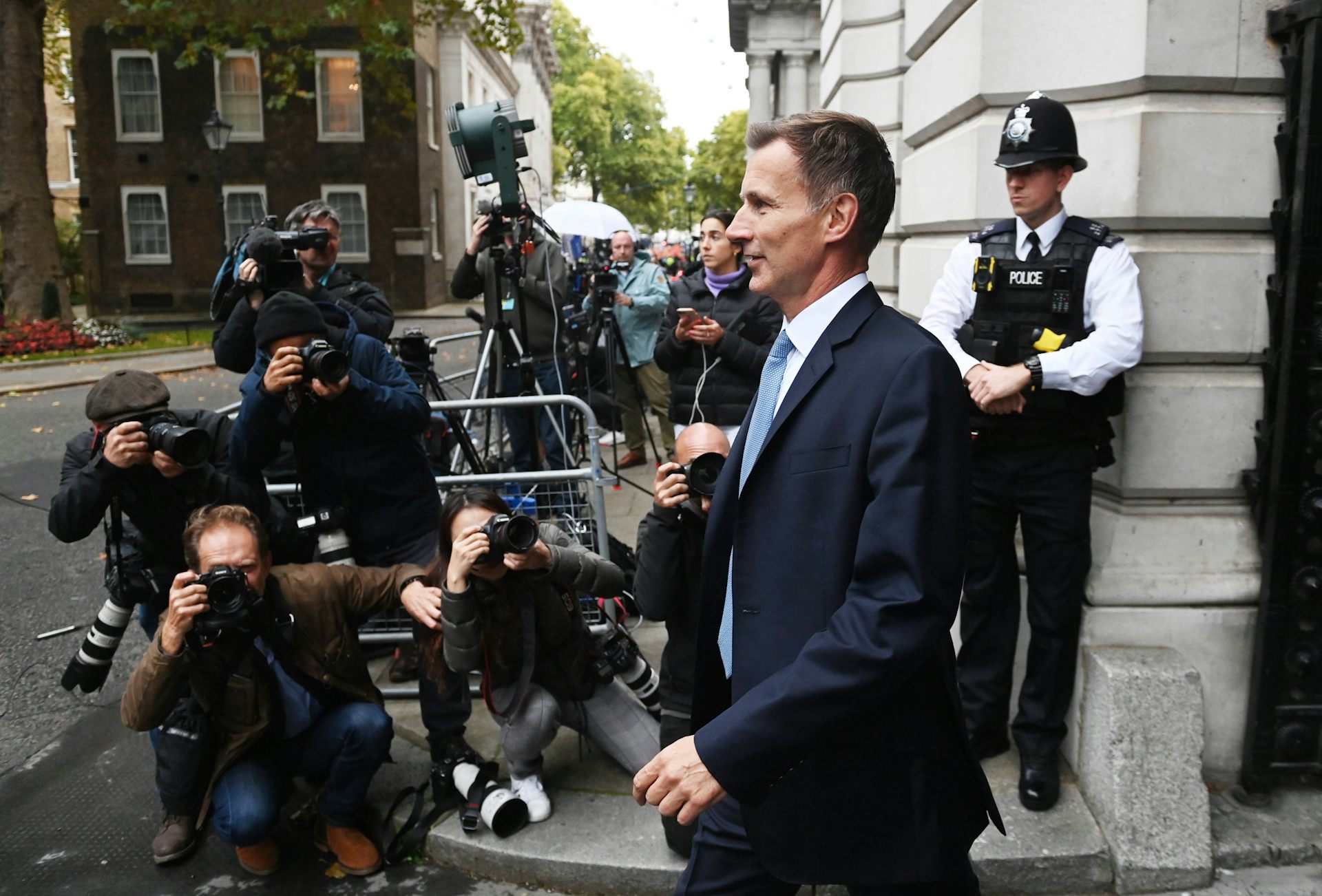
Newly-appointed Chancellor Jeremy Hunt has taken himself out of the leadership race.
Credit: Neil Hall / EPA-EFE
Rishi Sunak was defeated by Truss in the leadership contest that followed Boris Johnson’s resignation in the summer. He failed to win the support of the party membership in the head-to-head against Truss even though he had secured far greater support among MPs than her.
Sunak served as Johnson’s longest-serving chancellor but resigned following multiple scandals. He and his supporters have been critical of Truss’s disastrous economic policies and he could easily claim vindication on this point now that these very policies have destroyed her career.
However, many Johnson loyalists remain hostile to Sunak and view him as the person most responsible for triggering the coup that led to Johnson’s eventual resignation in July 2002. And since loyalty to Johnson remains strong in the party membership, there remains some significant internal opposition to Sunak ascending to the top job. Nevertheless, parliamentarians who support Sunak may be seeking to sideline the views of the membership given Truss was their preferred candidate.
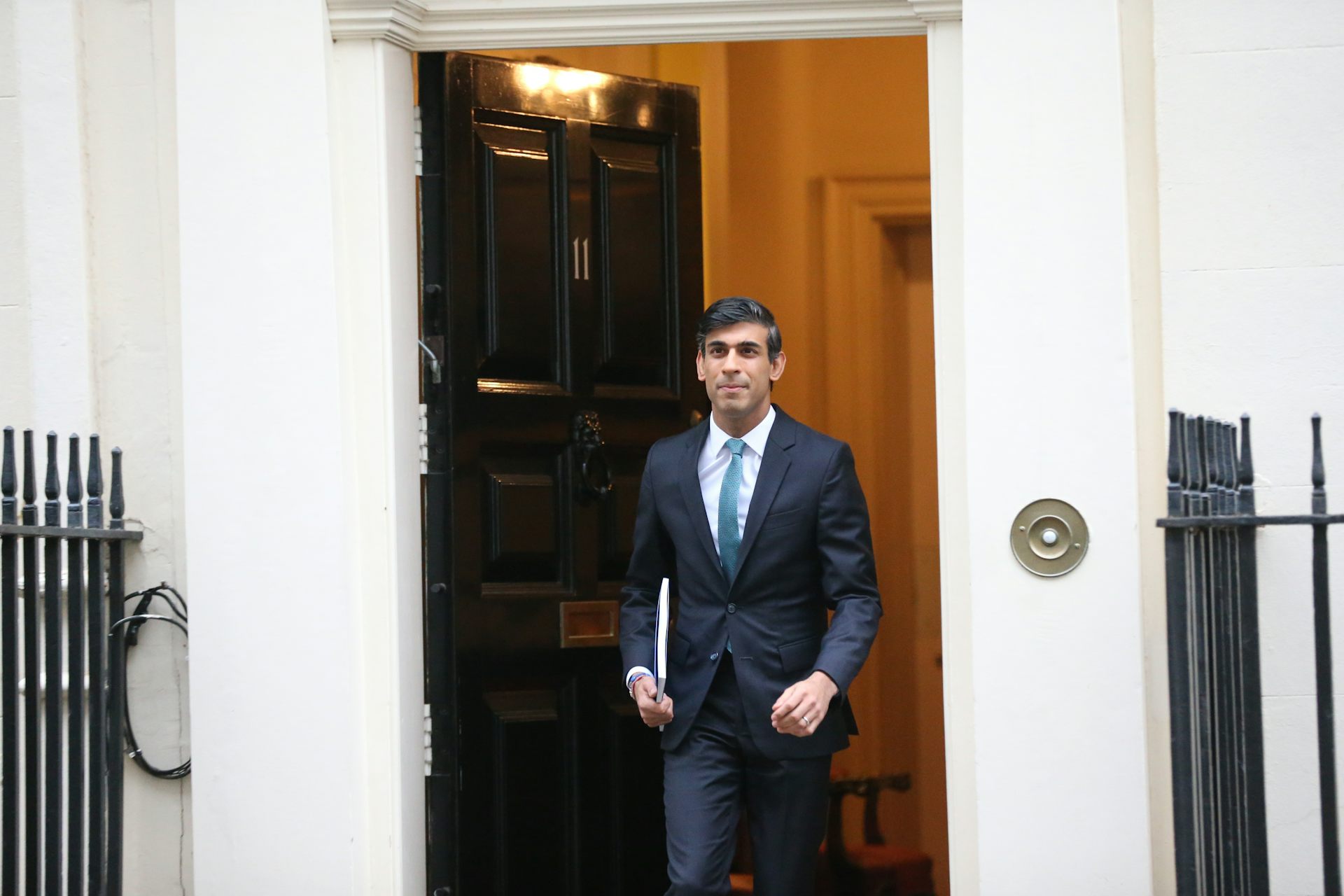
Rishi Sunak was Conservative MPs’ choice in the last leadership race.
Credit: I T S / Shutterstock
Perhaps the most surprising name to reappear on the lists of runners and riders in this contest is that of former prime minister Boris Johnson. It has only been a few months since he had to resign in disgrace.
While many were glad to see the back of his scandal-ridden regime, he retains a hardcore base of loyal supporters in parliament and in the party membership. In a YouGov poll taken in the days before Truss’s resignation, he topped the list of possible replacements.
Some continue to believe that his record as an election winner should trump any concern over his personal flaws. It would certainly be one of the greatest political comebacks of all time if the Conservatives turned to him to salvage their plummeting reputation. Many moderate Conservative MPs would feel that he remains too much of a risk to their already tarnished brand.
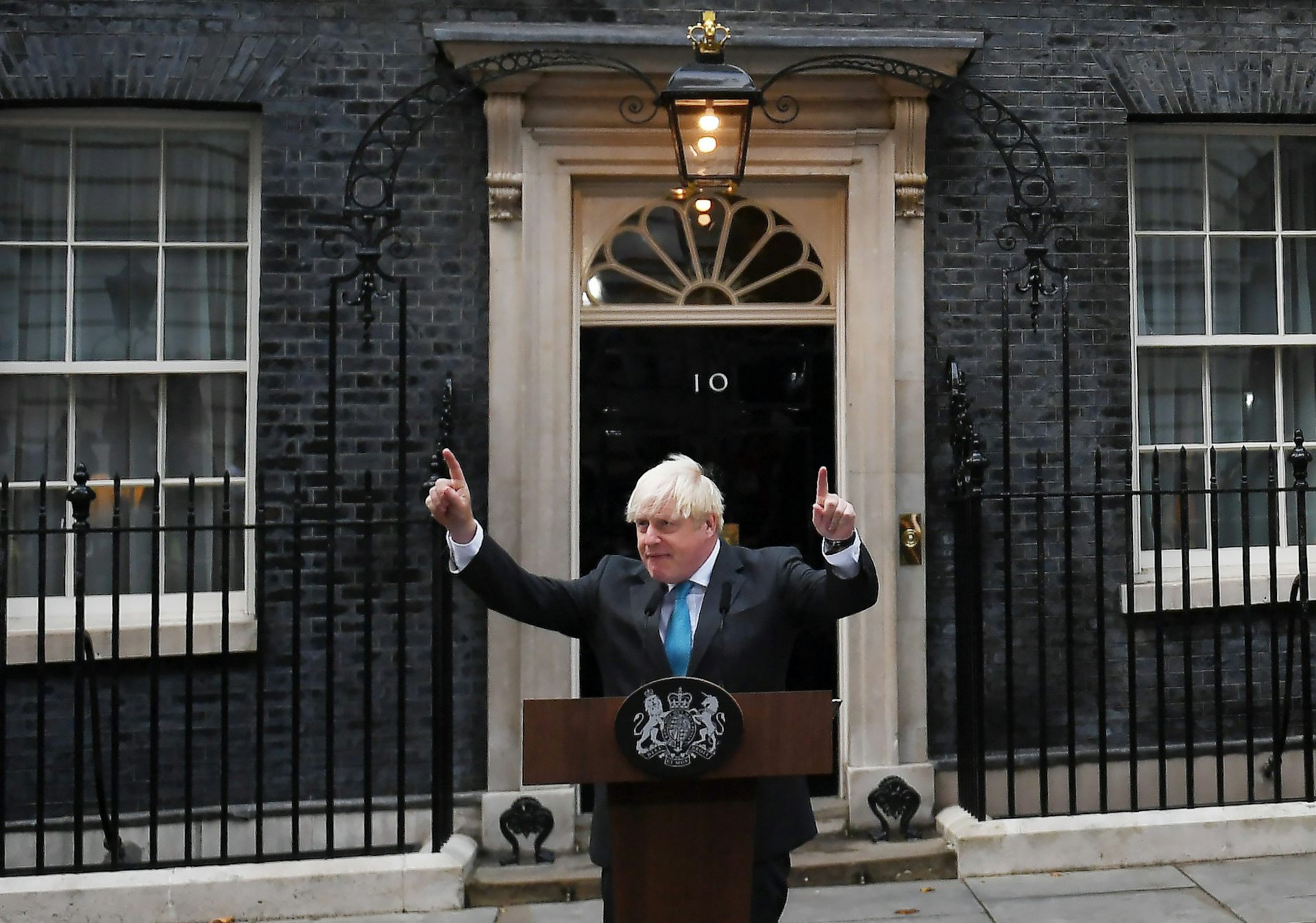
Could the last prime minister also be the next?
Credit: Neil Hall / EPA-EFE
Braverman was forced out of office as home secretary just one day before Truss’s departure. She lashed out at the government in a dramatic resignation letter that was widely read as a bid for leadership:
I have concerns about the direction of this government. Not only have we broken key pledges that were promised to our voters, but I have had serious concerns about this government’s commitment to honouring manifesto commitments.Braverman unsuccessfully ran for the top job in the summer and is firmly on the Eurosceptic right of the party. Her somewhat radical views on immigration are thought to be unpopular with more mainstream members of the parliamentary party, who also see her as far too inexperienced for the top job. And this is the group she would have to win over in order to stand a chance. All told, she appears to be a disruptive force in this contest more than a viable candidate.
My letter to the Prime Minister. pic.twitter.com/TaWO1PMOF2
— Suella Braverman MP (@SuellaBraverman) October 19, 2022
Mordaunt was said to have done her leadership prospects no harm when, as leader of the House, she combatively defended the government’s recent travails in the Commons while Truss was mysteriously absent.
Mordaunt was an early favourite in the leadership race to replace Boris Johnson, but was knocked out of the running just before the vote reached party members. Coming in third, she eventually backed Truss.
However, she perhaps lacks public profile and volume of parliamentary support compared to some of the other prospects.
Kemi Badenoch
Another of the defeated summer leadership candidates, Badenoch represents a younger generation of Conservative MPs. First elected in 2017, she is a relatively fresher candidate than most of the other contenders and surprised many observers for even standing for leader. She did better than expected, winning the endorsement of senior figures.
Of slight concern maybe is that she voiced many of the similar radical economic sentiments that culminated in Truss’s budget shambles, and she lacks any significant cabinet experience until recently. Of all the candidates, she would likely be the most concerned about getting the 100 votes needed to stand.
Ben Williams, Lecturer in Politics and Political Theory, University of Salford
Under the last 12 years of Tory government, the UK has gone from being a major economy, a leader in solving the global banking collapse in 2008, and a major player in the European Union, to a little, insular country on the fringes of Europe, in imminent danger of breaking up still further, and a laughing stock on the world stage as one incompetent buffoon after another holds the keys to 10 Downing Street and grapples to control a factious party of self-interested shysters and unprincipled careerists.
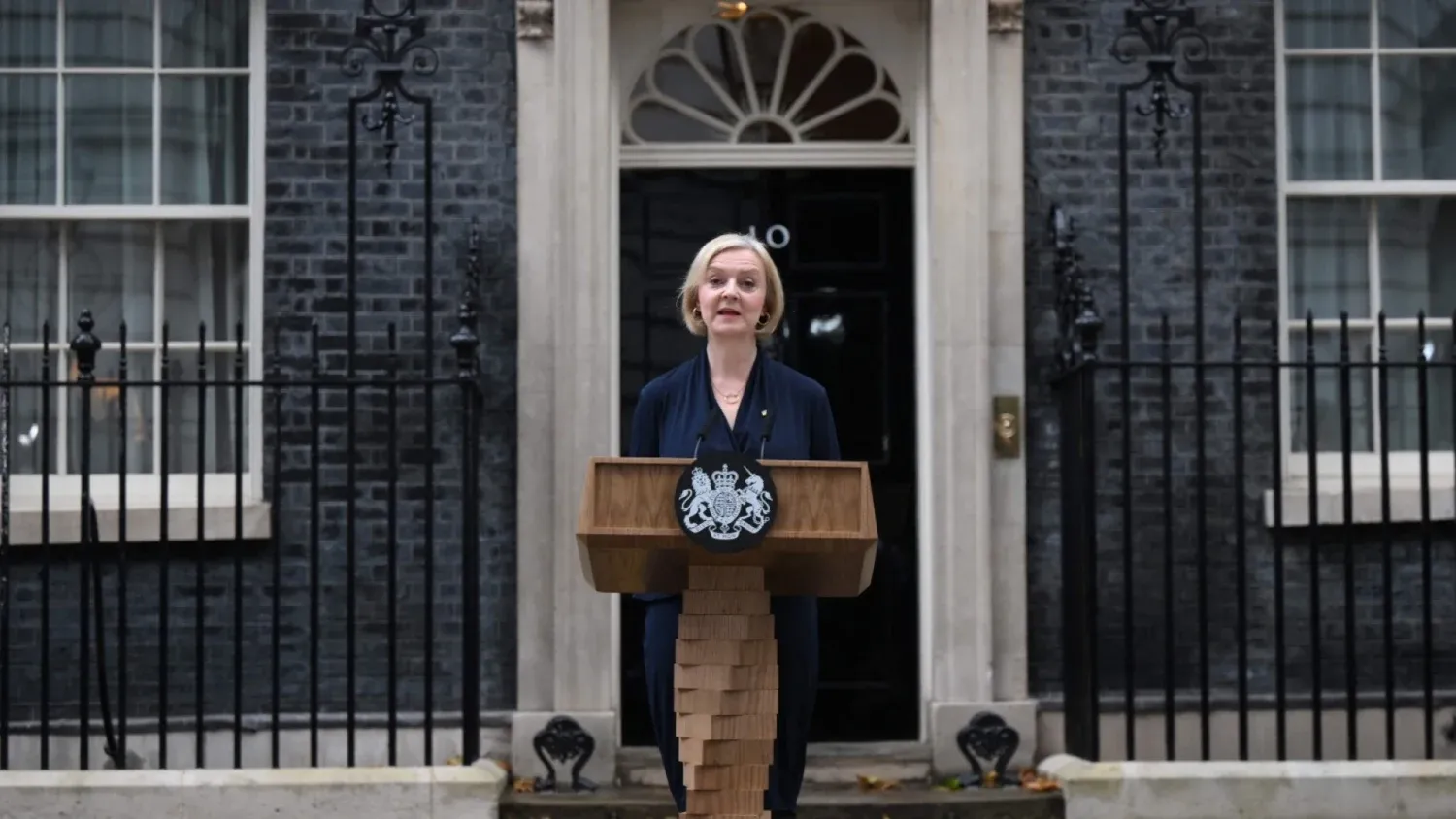
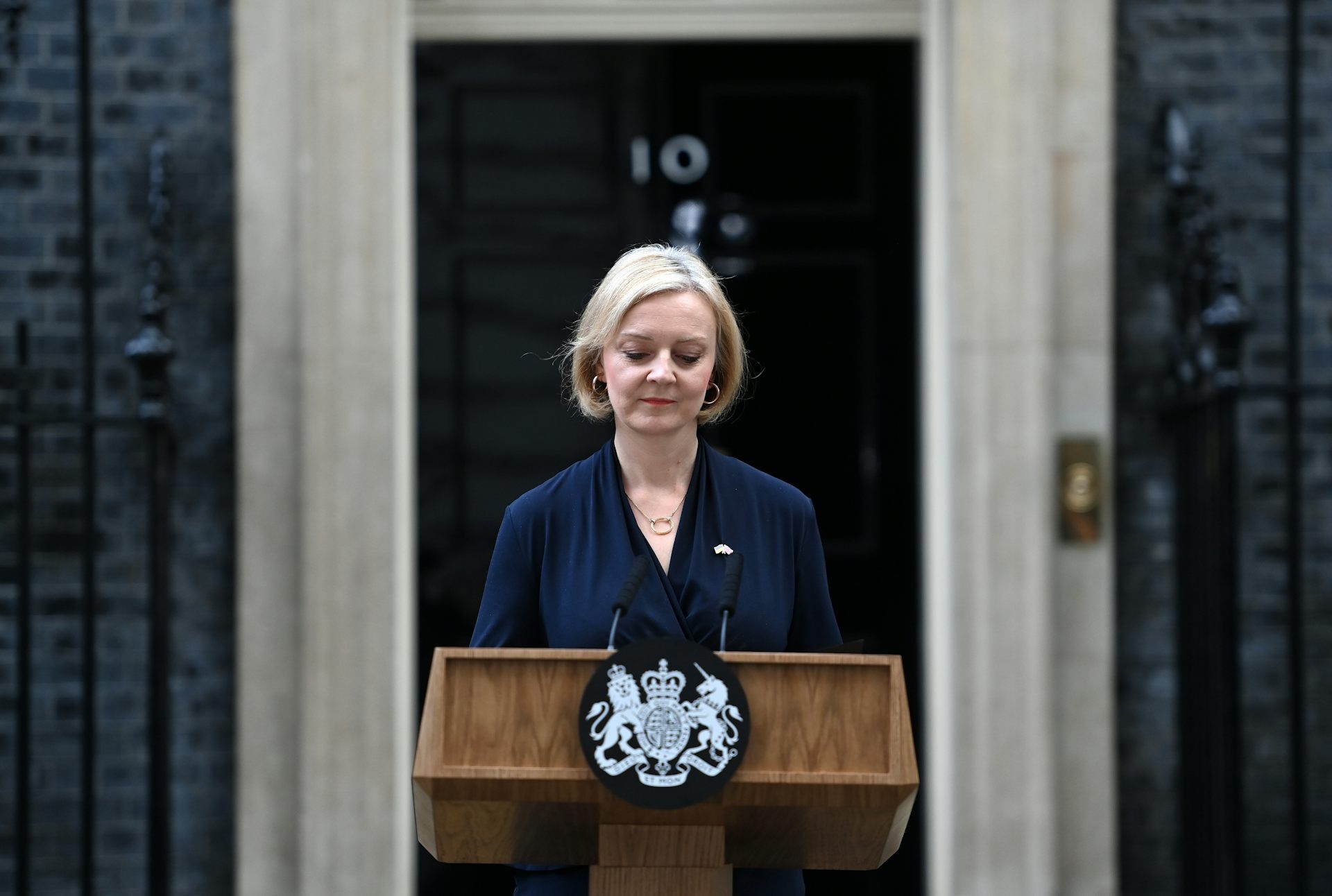

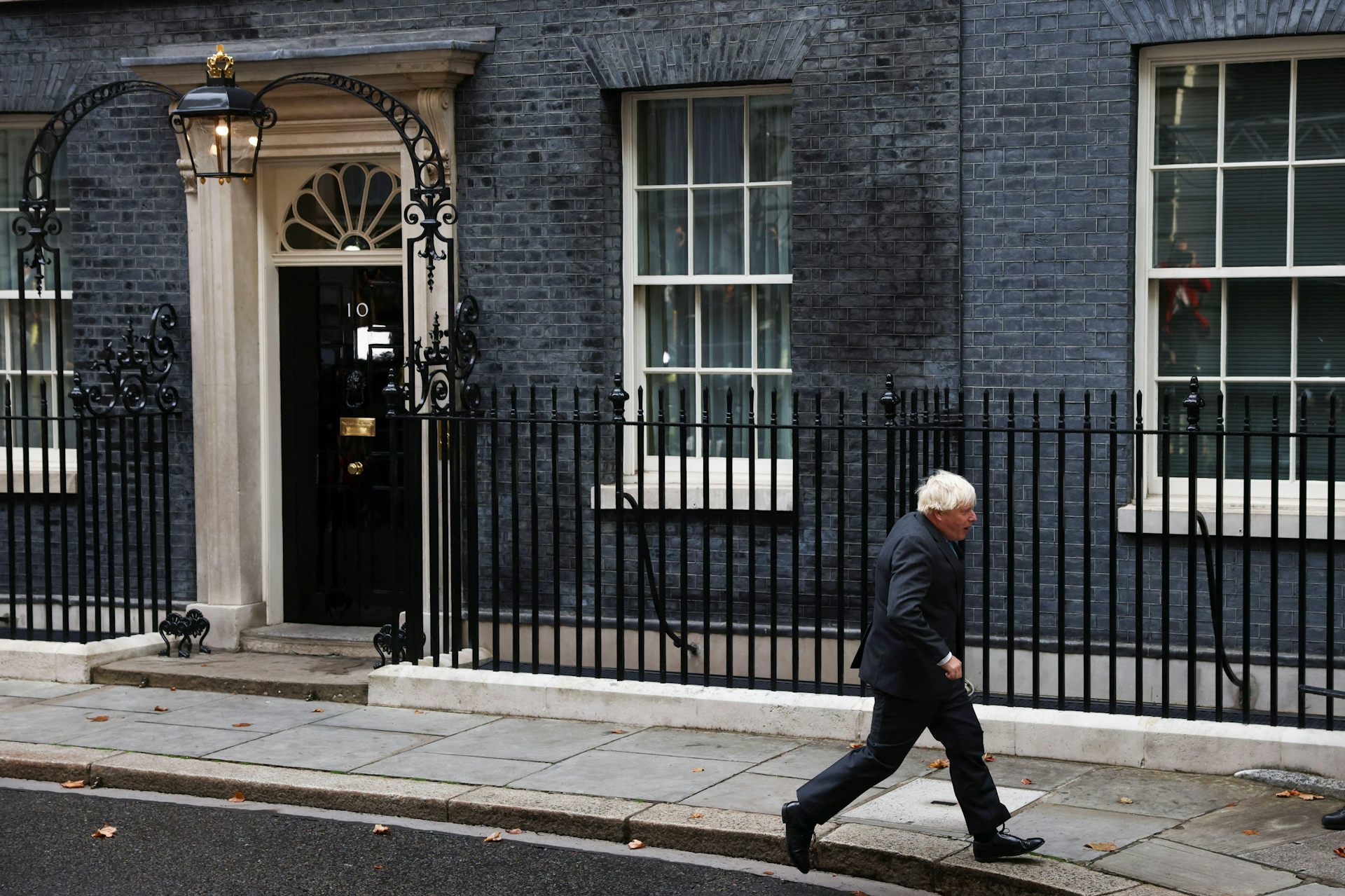


No comments :
Post a Comment
Obscene, threatening or obnoxious messages, preaching, abuse and spam will be removed, as will anything by known Internet trolls and stalkers, by known sock-puppet accounts and anything not connected with the post,
A claim made without evidence can be dismissed without evidence. Remember: your opinion is not an established fact unless corroborated.